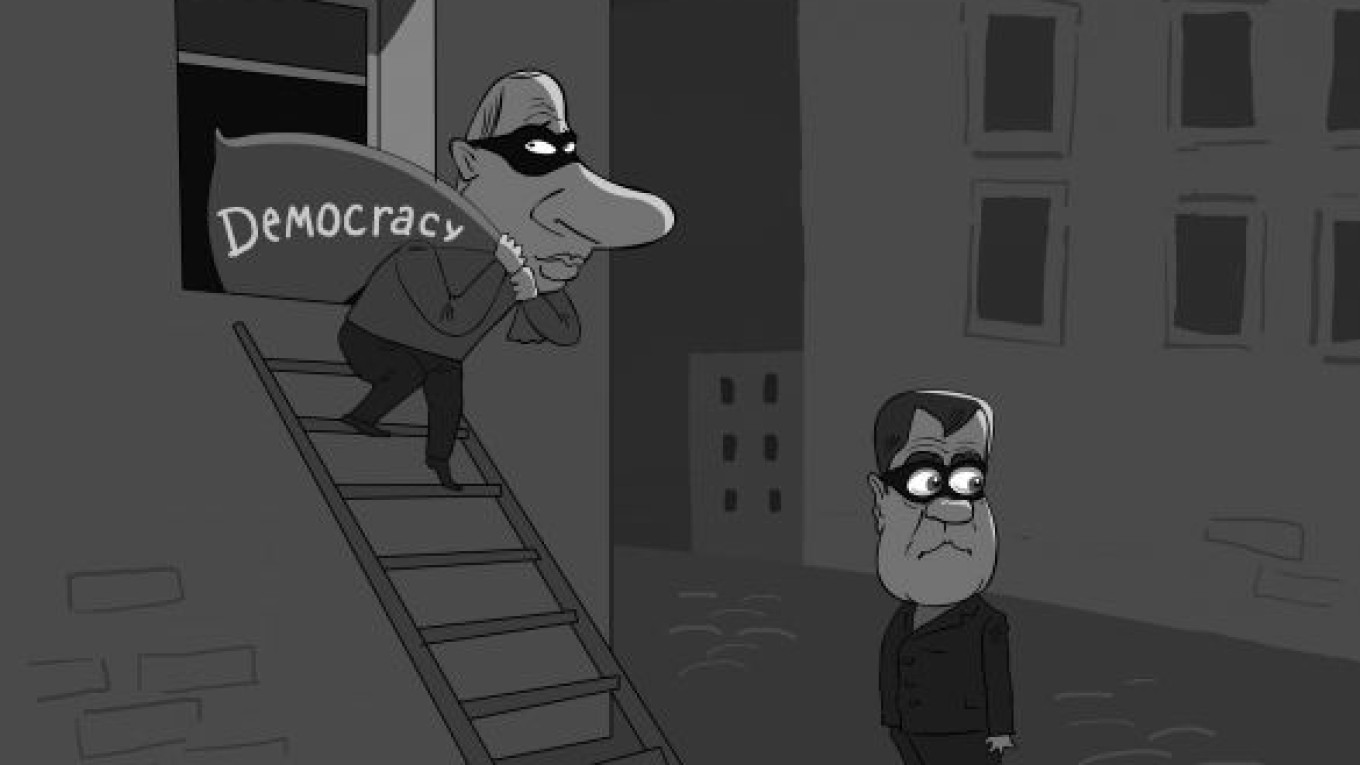ExxonMobil’s Aug. 30 announcement of large new investments in Russia, together with the armed raid of BP’s Moscow offices by court marshals the next day, have raised familiar questions as to whether the law can protect foreign investment in Russia. Some answers can be found in a Colorado court decision from this June that provides a rare inside look at lawlessness in Russian business and law enforcement.? The decision ended 10 years of litigation in which Creditanstalt Investment Bank — or CAIB, a division of Bank Austria — tried to hold two international law firms liable for the destruction of CAIB’s Russian stock brokerage business.
CAIB entered the Russian market in 1996 by buying a brokerage named Grant. In the purchase contract, Grant stated that it did not engage in bribery, kickbacks or other illegal payments. But this warranty included an unusual caveat:? “except for actions that are ordinary course of business and/or customary practice in Russia.”
Grant held shares in Gazprom for the benefit of foreign customers. At the time, foreign ownership of Gazprom shares, including indirect ownership through a Russian company, was subject to legal restrictions. After receiving advice about the restrictions from the two law firms’ Moscow offices, as well as receiving Gazprom management’s informal “blessing” of Grant’s holdings, CAIB let Grant keep the shares. ?
In April and May 1999, Grant’s back office manager, Dmitry Arkhipov, secretly stole most of Grant’s Gazprom shares. On June 1, 1999, the Moscow tax police raided Grant’s office, seizing most of its contents. Arkhipov was never found, and the disruption from the raid prevented Grant from retrieving the shares. The Wall Street Journal wrote on Oct. 26, 1999, that the sums involved, over $20 million, “could make this the country’s worst share [theft] scandal.”? CAIB’s internal auditors concluded that Arkhipov and the tax police had collaborated in the raid in order to hide the theft.
Adding insult to injury, the tax police opened a criminal investigation in 2000 into whether Grant’s Gazprom holdings violated foreign ownership restrictions. Law enforcement officials offered to help call off the tax police investigation in return for bribes. The tax police investigation never led to a prosecution, but it was also never closed.? Eventually, CAIB shut down Grant.
In the U.S. litigation, CAIB claimed that the lawyers did not adequately warn that the Gazprom holdings could lead to devastating law enforcement actions. The Colorado judge denied the claims, finding that the lawyers adequately warned of the Gazprom legal risks and that CAIB accepted the risks for the prospect of financial gain. Similarly, the judge saw “great significance” in CAIB’s acceptance of corruption as the “ordinary course of business,” while corruption, including the tax police raid and its aftermath, was a major cause of the destruction of the business.
Companies fearing Russia’s unpredictable legal system often seek political protection for their investments. CAIB hoped for such protection in the informal blessing by state-controlled Gazprom. Similarly, although Exxon signed its deal with state-controlled Rosneft, Exxon’s press release notes that the signing took place “in the presence of” Prime Minister Vladimir Putin.
But protection from politicians who act above the law is not reliable. Former President Boris Yeltsin, ruling by presidential decree, promised fair competition in the distribution of privatized state property, but he reneged when he allowed oligarchs to capture major natural resource companies in rigged auctions in return for financial support in the 1996 presidential election. One of the companies, Yukos, was nationalized 10 years later, again through rigged auctions, as a result of bankruptcy brought on by tax prosecutions during Putin’s presidency. Putin’s assurance early in the prosecutions that the authorities were not seeking to bankrupt Yukos sounds in retrospect like a boast that the government can use the law as it pleases.
By holding themselves above the law, Yeltsin and Putin set a bad example for courts and government officials responsible for administering the law. Putin further undermined the legal system by establishing single-party rule, which insulates the government from accountability not only to the law but also to the electorate. Although President Dmitry Medvedev has put legal reform at the top of his agenda, lawlessness has continued during his tenure. Most recently, after the Yaroslavl airplane crash on Sept. 7, Medvedev pointed to “rule violations” as the main cause of the country’s frequent transportation disasters.
Russia’s autocratic political system deserves respect for bringing stability after the chaos of the 1990s. But the consequences of autocracy for the legal system must also be recognized. A regime that is not answerable to the law or the electorate cannot expect its police and judges to obey the law. Without free elections, the rule of law in Russia does not have a chance, and corruption will remain the “ordinary course of business.”
Daniel Rothstein, a New York lawyer, was on the defense team in the legal malpractice litigation described in this comment and practiced law in Moscow from 1990 to 2000.
A Message from The Moscow Times:
Dear readers,
We are facing unprecedented challenges. Russia's Prosecutor General's Office has designated The Moscow Times as an "undesirable" organization, criminalizing our work and putting our staff at risk of prosecution. This follows our earlier unjust labeling as a "foreign agent."
These actions are direct attempts to silence independent journalism in Russia. The authorities claim our work "discredits the decisions of the Russian leadership." We see things differently: we strive to provide accurate, unbiased reporting on Russia.
We, the journalists of The Moscow Times, refuse to be silenced. But to continue our work, we need your help.
Your support, no matter how small, makes a world of difference. If you can, please support us monthly starting from just $2. It's quick to set up, and every contribution makes a significant impact.
By supporting The Moscow Times, you're defending open, independent journalism in the face of repression. Thank you for standing with us.
Remind me later.


